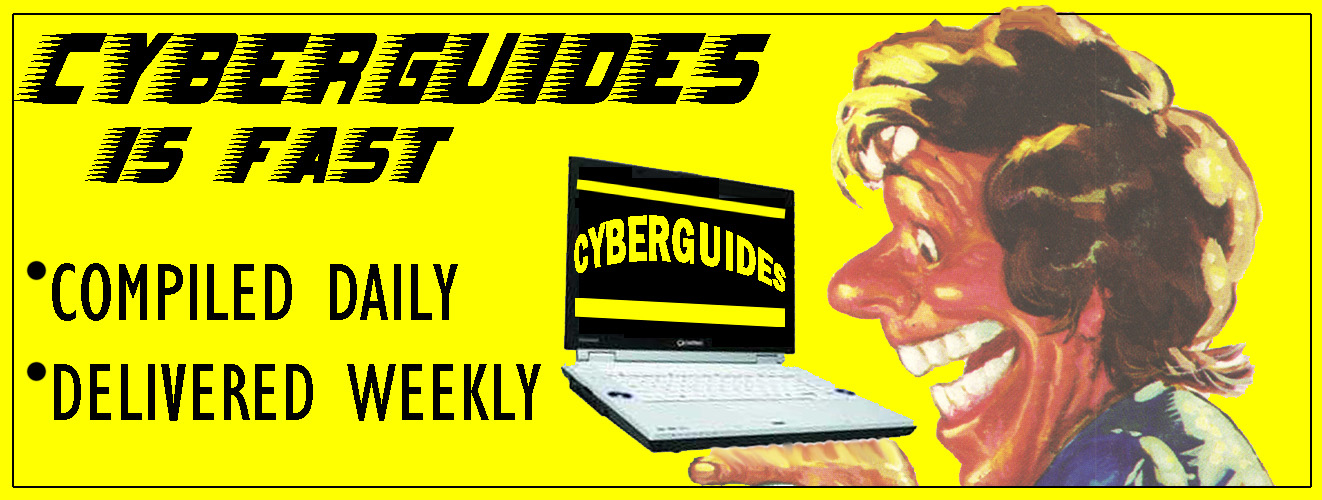

 Ask “Mr. Music”
Ask “Mr. Music” 
 Jerry Osborne
Jerry Osborne 

 FOR THE WEEK OF MAY 12, 2003
FOR THE WEEK OF MAY 12, 2003DEAR JERRY: Among my records is one that has always been a of a mystery to me.
I have a 45 by Eddie Reeves with “Talk Talk” on one side and “Cry Baby” on the other. It is Warwick 667.
Then, in a Warwick discography, I spotted a later number, Warwick 681, with “Talk Talk” again, but backed with “In My Heart of Hearts.”
I like Eddie Reeves, and would like to confirm the existence of the second Warwick single before adding it to my want list.
Also, any idea whatever happened to Eddie?
—Carlos Marcala, Southern, Conn.
DEAR CARLOS: It's good that you asked because I can save you some time and possible disappointment.
Both sides of Warwick 667, a 1961 issue, are by Eddie Reeves. On 681, released in '62, only “Talk Talk” is Reeves. “In My Heart of Hearts” is by another act altogether — a group called the Voxpoppers.
Two years earlier, this same band had another Warwick single (“589), “Lonely For You,” but on that they are billed as Freddie and the Voxpoppers.
As for an update on Mr. Reeves, I asked him to fill you in, and here is his e-mail reply:
“First, I knew nothing about the Warwick release of “Talk Talk” and “In My Heart of Hearts.” I know I never recorded the latter tune.
“In 1964, I joined Norman Petty as his New York City representative, then moved on to United Artist Music Publishing from 1965 to 1972.
“In the early '70s, I co-wrote “All I Ever Need Is You,” a hit by Sonny & Cher and then by Kenny Rogers and Dottie West.
“Two more of my songs that did quite well are “Rings,” by Cymarron and later by Lobo, and “Don't Change On Me,” by Ray Charles.
“Next I went to ABC Records and Publishing as a singer and writer from 1972 to '74, then Chappell Music as West Coast VP from 1974 to 1977. There I signed and helped launch the careers of Kim Carnes, the Sanford Townsend Band, and also Jules Shear.
“From 1977 to '80 I had my own management-publishing company and co-published the Kenny Rogers “Gideon” album, from which came the hit “Don't Fall In Love with a Dreamer.”
“I was the personal manager and music publisher for Jules Shear (a.k.a. Jules and the Polar Bears) and for Slow Children.
“In 1980 I left the music business for four years and ran a family real estate business in my hometown, Amarillo, Texas.
“I moved to Nashville in '84 as Executive VP and General Manager of the Nashville Division of Warner Bros.
“I retired from the music business at the end of 1999 and moved to Winnipeg, where I still live, but will be moving back to Tennessee this summer, where I plan to finish writing a book.”

Unless my memory is bogus, I recall in the '60s finding a 45 among my brother's records by the Church Street Five.
Am I right? If so, what is the connection?
—Karl Sieger, Lancaster, Pa.
DEAR KARL: Guida had Gary Anderson — recording as U.S. Bonds — sing the vocal “Quarter to Three” over an instrumental track nearly identical to the Church Street Five's “A Night with Daddy G.” That is the 45 you spotted in your brother's music stash.
Essentially, “Quarter to Three” (Legrand 1008) is “A Night with Daddy G” with lyrics. Issued in May 1961, “Quarter to Three” roared right to the No. 1 spot on all the sales charts.

DEAR JERRY: I have almost all of the oldies that I want, except one. I hope you can identify it for me.
I don't know the singer, but it was a hit around the time of the TV quiz show, “The $64,000 Question.”
The title is along the lines of “Do You Love Me? That is the $64,000 Question.”
—Bill Munda, Holiday, Fla.
DEAR BILL: There are two different songs with the $64,000 Question theme, though neither made any of the charts.
You do not indicate if the version you seek is by a male or female, so I'll list them all and let you choose.
You probably want “The $64,000 Question (Do You Love Me),” a fall 1955 release by three different artists: Bobby Tuggle (Checker 823); Jackie Brooks (Decca 29684); and the Burton Sisters (RCA Victor 47-6265).
The other song is “(Love Is the) $64,000 Question,” which came out a few months later, in early '56.
These folks had versions of this tune: Hal March (Columbia 40684); Karen Chandler (Decca 29881); Jim Lowe (Dot 15456); and Tony Travis (RCA Victor 47-6476).
Is yours among these seven? That is now the $64,000 question!



IZ ZAT SO? In case you didn't make the connection, the version of “(Love Is the) $64,000 Question,” by Hal March, has special significance.
Hal March emceed the highly successful then later disgraced CBS-TV show, “The $64,000 Question.”
Among the contestants winning the $64,000 grand prize was a young psychologist named Dr. Joyce Brothers.



